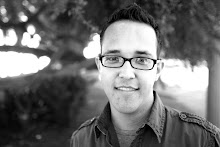I’m currently in the process of applying to grad school, so I’ve been trying to figure out what I should write about in my statements of purpose. What is it that I want to pursue? What area of study am I passionate about? Where might I make a significant contribution? I’m interested doing some sort of constructive theology with great weight given to theological and social ethics. For me, theology has to be honest and relevant. That means that I’m not really interested in discussing lofty issues like the trinity or soteriology unless those discussions are intimately linked with daily life. Questions about God aren’t that important unless they mean something to us on an intimate level.
As I try to define what it is that I want to pursue, I keep coming back to one phrase: agnostic theology. What I mean by that is working out a humble theology that recognizes our inability to know God completely, where even the surest of statements is never more than a “possibility.” I always have to be willing to admit, no matter how strongly I feel about an issue, that there is a decent chance that I am wrong. There are so many competing ideas about God that it is asinine to claim to be the sole bearer of truth. Every pious person is as sure as the next that he or she has the truth, but there is no way to evaluate the competing claims. Can anyone tell who is more certain? Who can judge whose experience is most legitimate? Maybe there’s some crazy stuff that can be ruled out on the fringes, but by and large it is one claim against another.
So I am forced to pursue agnostic theology—speaking about God with honesty. The word “agnostic” may immediately raise red flags for some, but even the Bible admits that faith is based on incomplete knowledge—faith is being “certain of what we do not see.” My brand of agnostic theology is not meant to be a threat to faith—it is choosing to speak faithfully about God while fully recognizing the uncertainties that are inherent to faith. Because our knowledge of God is doomed to be incomplete, we don’t have to worry about getting everything 100% correct. There is freedom in that. Agnostic theology allows us to move beyond endless debates over the minutiae of metaphysical truth and to step toward discussions about what it means to live as Christians in a world where God is both revealed and disguised.


I have referred to my own thinking as a Theology of Agnostic Possibilities. It bothers those who think we can be more certain. But a theology of certainty invites either blind concurrence or intelligent rejection.
ReplyDeleteI also tend to dislike the limited possibilities that "certainty" creates. To me, certainty is inauthentic—it fails to acknowledge what it means to be human. While agnosticism can be uncomfortable at times, at there very least it is honest.
ReplyDelete